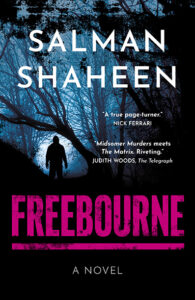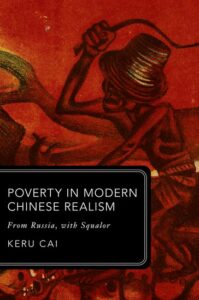“Untranslatable”, concluded the erudite, 17th-century Jesuit missionaries, referring to the glorious corpus of Chinese poetry. While they acknowledged that poetry played an outsized role in Chinese civilization, they limited their translations to histories and scientific texts. They knew of but didn’t try to tackle the Book of Songs or the Tang dynasty anthologies. We can explain their reluctance by recalling that in their era, Latin and Italian poetic forms shaped their tastes just as strictly as ancient Chinese forms limited that of their hosts. They could not translate Chinese poetry into Petrarchan sonnets or Horacian odes, so they didn’t.

After learning of his wife’s affair with his best friend and business partner, divorced and unemployed MindTech entrepreneur Dr Harry Coulson arrives in the idyllic English town of Freebourne, looking to start a new life. But any hopes of quietly picking up the pieces of his broken world are shattered when he steps off the train to discover the body of a young woman lying in the snow. It’s almost as if she’d been left there for him to find.
The Louvre Museum’s recent major exhibition on the Mamluk Sultanate explores the dynasty’s rich legacy in terms of the art and architecture of Egypt and Syria. The exhibition—a first for Europe—comes more than forty years after a touring exhibition in the United States curated by Dr Esin Atil. “Mamluks (1250-1517)” brings together 260 works from the Louvre’s own collections, alongside national and international loans.
A compilation of reviews in the past twelve months for Women in Translation month (August 2025), including non-fiction and poetry and well as novels, short stories and children’s books. These include translations from Chinese, Japanese, Korean, Arabic, Sumerian, Bengali, Kannada, Hindi, German, Vietnamese, Thai and Kurmanji.
The opening panels of the manga Miss Ruki show the title character working from home processing medical insurance claims. In a voice so dry it verges on sardonic, an unseen narrator explains that Miss Ruki finishes projects weeks earlier than her boss thinks she does, so she spends most of her time reading books from the library—books like Saeke Tsuboi’s anti-war classic Twenty-Four Eyes or Ira Levin’s classic American horror novel Rosemary’s Baby.
On 19 February 1942, President Franklin D Roosevelt announced Executive Order 9066, which authorized the confinement of tens of thousands of Japanese and Japanese-Americans living in the Western US, sending them to cramped, hastily-constructed camps like Manzanar and Amache. One such Japanese-American was Karl Yoneda, a well-known labor activist–and the husband of Elaine Yoneda, a Jewish-American woman. Elaine soon followed her husband to the Manzanar camp, after authorities threatened to send her three-year-old mixed-race son, Thomas, to the camp alone.
Prose poetry can be hard to get a handle on. It is literally oxymoronic, like “documentary fiction”; such terms are perhaps a recognition that most categories are really endpoints on a spectrum. As one now does in these situations, one asks AI, which unhelpfully replied: “Prose poetry is a hybrid literary form that adopts the structural format of prose—paragraphs without line breaks—while employing the stylistic and rhetorical devices of poetry.”
A fluent Arabic speaker, Justin Marozzi has spent much of his career as a journalist and author trying to understand the Middle East through an historical lens. His earlier books include Islamic Empires, a history of Islamic civilisation told through some of its greatest cities, and Baghdad: City of Peace, City of Blood, which won the 2015 Royal Society of Literature’s Ondaatje Prize.
Writers have long found it useful to approach the tumult of modern China through the lives of those leaders born around or shortly after the turn of the twentieth century: men whose careers stretched across the subsequent decades of revolution, war, political turmoil and economic transformation. In the last twelve months we have already had two heavyweight biographies of such Chinese leaders—Chen Jian on Zhou Enlai, Robert Suettinger on Hu Yaobang—and now Joseph Torigian has written a similarly substantial account of the life of Xi Zhongxun. Though he never held the highest office, Xi’s life provides a revealing lens through which to view the history of both party and country, as well as the remarkable psychology of persecution and allegiance that marks the stories of the generation of leaders who suffered through the worst excesses of the Mao era.

Keru Cai’s Poverty in Modern Chinese Realism examines the ways in which early 20th-century Chinese writers drew upon Russian works about the socially downtrodden to describe poverty, in a bid to enrich Chinese culture by creating a syncretic new realism. Modern Chinese realist writers turned to the topic of material poverty—peasants suffering from famine, exploited urban laborers, homeless orphans—to convey their sense of textual poverty and national backwardness.

You must be logged in to post a comment.